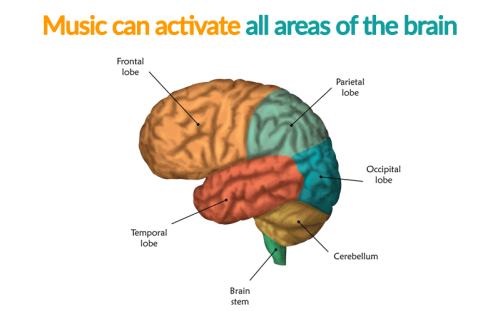What is Music Therapy?
Music therapy is a healing therapy that uses music to address physical, emotional, cognitive, and social needs. It involves creating, listening to, or moving to music under the guidance of a trained therapist. Many people have found solace in the soothing melodies and rhythms that can positively affect mental health. The practice has been widely used in hospitals, schools, rehabilitation centers, and private clinics to help people of all ages cope with various challenges.
Musical therapy is highly adaptable and can be personalized to fit the unique needs of individuals. Sessions may include activities like singing, songwriting, improvisation, guided imagery with music, or rhythmic entrainment. This flexibility allows therapists to create a safe space where participants can freely express themselves and explore their emotions. Audiology also plays a crucial role in understanding how sound and music impact the brain and overall well-being, enhancing the therapeutic process.

How Does Music Therapy Work?
Music therapy works by engaging various parts of the brain through sound. Whether through playing instruments, singing, or simply listening, this form of sound therapy can help regulate emotions and reduce stress. For those curious about how musical therapy affects the brain, studies show that music stimulates neural pathways associated with memory, emotion, and even physical coordination. It activates the limbic system, which processes emotions, and the prefrontal cortex, which governs decision-making and self-control.
Additionally, music can synchronize brain waves to achieve states of relaxation or alertness. For example, slow, soothing melodies can promote alpha brain waves, which are linked to relaxation, while upbeat rhythms can stimulate beta waves, associated with focus and energy. This intricate interaction makes music a powerful tool for emotional regulation and mental clarity.

Types of Music Therapy
- Active Musical Therapy: Involves actively participating in music-making, such as playing instruments, singing, or composing. This form of therapy encourages creativity and emotional expression.
- Receptive Musical Therapy: Focuses on listening to music, often paired with visualization or relaxation techniques. It aims to evoke positive emotional responses and reduce anxiety.
- Sound Healing: Uses specific frequencies and vibrations to promote relaxation and balance in the body. Instruments like singing bowls, gongs, and tuning forks are commonly used.
- Neurologic Musical Therapy (NMT): Specially designed to treat neurological disorders such as stroke, Parkinson’s disease, and traumatic brain injuries by using rhythm and melody to retrain brain function.
- Improvisational Musical Therapy: Allows clients to create spontaneous music, encouraging free expression and emotional release.
- Guided Imagery and Music (GIM): Involves listening to specially selected music while exploring imagery, memories, and emotions with the guidance of a therapist.

How Does Music Therapy Help Depression and Anxiety?
For those battling anxiety and depression, musical therapy offers a safe space to express emotions and find comfort. It encourages relaxation, reduces cortisol levels, and boosts dopamine production, leading to a more balanced mood. Wondering how music therapy is beneficial for mental health? It creates a sense of connection and purpose, helping individuals cope with difficult emotions. Additionally, Musical Therapy can help develop coping strategies, improve sleep quality, and enhance overall emotional resilience.
Research shows that listening to music with a slow tempo and low pitch can reduce symptoms of anxiety by slowing heart rate and lowering blood pressure. Meanwhile, uplifting music can elevate mood and combat feelings of sadness or isolation. Through regular sessions, individuals learn to harness these effects and use music as a personal tool for managing mental health.

Music Therapy for Autism
Musical therapy for autism has shown remarkable results in improving communication skills, reducing anxiety, and enhancing social interactions. It provides a non-verbal outlet for expression, which can be particularly beneficial for non-speaking individuals. Techniques include structured music activities that encourage turn-taking, joint attention, and social engagement. Musical therapy can also support sensory processing, helping individuals regulate their responses to external stimuli.
Parents seeking “music therapy for autism near me” can find specialized therapists trained to work with children and adults on the spectrum. These professionals tailor each session to meet the unique sensory and emotional needs of the individual, fostering an environment of comfort and trust.

Benefits of Music Therapy
The benefits of music are vast, but in the context of mental health, music therapy offers:
- Stress and anxiety reduction
- Improved mood and emotional regulation
- Enhanced communication skills
- Increased self-awareness and confidence
- A sense of connection and belonging
- Better sleep patterns
- Pain management
- Enhanced cognitive functioning, particularly in memory and attention
- Support in trauma recovery
- Development of coping skills
- Promotion of social skills and relationships
In addition to these emotional and psychological benefits, music therapy has been shown to improve physical health by reducing heart rate, lowering blood pressure, and even boosting the immune system. As a non-invasive form of treatment, it offers a gentle path toward holistic healing.

Music Therapy Quotes to Inspire
Here are a few music therapy quotes to reflect on:
- “Where words fail, music speaks.”
- “Music can change the world because it can change people.”
- “Healing comes in waves, and maybe today the wave hits the rocks. But that’s okay, dear one, you are still healing.”
- “One good thing about music, when it hits you, you feel no pain.”
- “Music expresses that which cannot be said and on which it is impossible to be silent.”
Finding a Music Therapist
If you’re considering trying music therapy, look for certified therapists in your area. Searching for phrases like “music therapy for autism near me” or “sound therapy for anxiety near me” can connect you with local practitioners who specialize in these techniques. When choosing a therapist, consider their credentials, areas of expertise, and approach to therapy. Many therapists offer initial consultations to help determine if their methods align with your needs.
Additionally, you can explore online musical therapy sessions, which have become increasingly popular and accessible. Virtual sessions offer flexibility, making it easier to incorporate therapy into your routine from the comfort of your home.
Musical therapy is more than just listening to songs — it’s a holistic approach to healing that uses sound to promote well-being. Whether you’re seeking help for anxiety, depression, or autism, music therapy offers a path toward emotional balance and peace.
Ready to experience the benefits of music for yourself? Find a therapist near you and embark on a healing journey through sound.

Hi! I am Swati Suri, a Special Educator with 9+ years of experience and the founder of Nurturers. I am passionate about helping children with special needs and supporting their families every step of the way.

